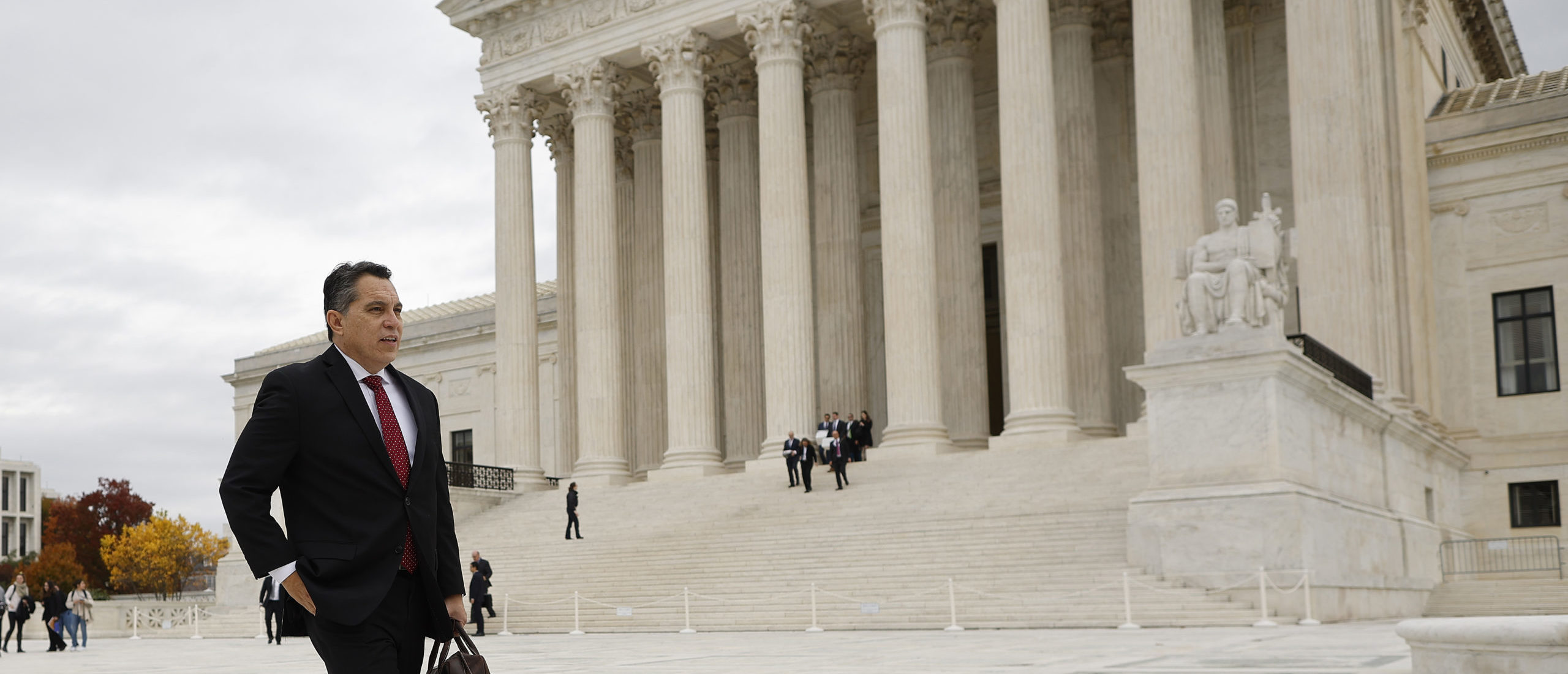The Biden administration may have opened itself up to a more expansive ruling on its coordination with social media companies to censor speech by asking the Supreme Court to freeze a federal appeals court’s injunction.
The administration asked the Supreme Court last week to pause the Fifth Circuit’s scaled-back injunction in the free speech lawsuit Missouri v. Biden, which prevents the administration from coercing or encouraging social media companies to censor speech. The Fifth Circuit’s ruling, while finding that the White House, Surgeon General, Centers for Disease Control and Prevention and the FBI violated the First Amendment, removed the Cybersecurity and Infrastructure Security Agency (CISA) and other government officials from the district court’s injunction, and narrowed the language of the injunction itself.
Now, assuming the Supreme Court agrees to review the case on its merits after deciding whether to grant a stay, the justices will have a chance to uphold that ruling, restore the broader district court injunction or do something else.
“The Administration is certainly bold to ask for a stay in the Supreme Court,” Jenin Younes, lead counsel representing the four private plaintiffs on the case for the New Civil Liberties Alliance, told the DCNF. “While ultimately the Fifth Circuit’s decision was a victory for us and for the First Amendment, that court’s ruling was somewhat more conservative with respect to the legal standard for assessing state action as well as the application of those facts to CISA than the district court’s holding.”
Aaron Terr, Foundation for Individual Rights and Expression director of public advocacy, told the DCNF there is “no telling how the Supreme Court will rule if it decides to review the case.”
“But the principles at stake aren’t new,” he said. “The Supreme Court has in the past held that the government may not coerce private companies into censoring constitutionally protected speech.”
District of Louisiana Judge Terry A. Doughty’s injunction had not only prevented the administration from coordinating with social media companies to censor speech, but also barred the government from “collaborating, coordinating, partnering, switchboarding, and/or jointly working with” research groups and projects that advocate for censorship. It enjoined a variety of government entities, including NIAID officials, CISA officials and State Department officials, who are not included in the Fifth Circuit’s revised injunction.

WASHINGTON, DC – OCTOBER 31: Attorney David Hinojosa (R) leaves the U.S. Supreme Court after oral arguments on October 31, 2022 in Washington, DC. (Photo by Chip Somodevilla/Getty Images)
The government claimed in its application the Supreme Court that the Fifth Circuit had imposed a “startling” ruling that placed “unprecedented limits on the ability of the President’s closest aides to use the bully pulpit to address matters of public concern.”
In its Wednesday response, the state and individual plaintiffs argued that the administration’s claim that the ruling was “startling” is without merit.
“The ‘startling’ feature of this case is Defendants’ unprecedented disregard for the First Amendment,” they wrote.
“Here, federal censorship has fundamentally altered online discourse—rendering entire viewpoints on matters of great public concern virtually unspeakable on social media— and thus the States suffer a devastating injury to their sovereign interest in hearing from and communicating with their own citizens,” they wrote. “As a result of federal action, state officials cannot read on social media whether their citizens are skeptical of COVID vaccines, oppose mask mandates, believe that COVID escaped from a lab, have doubts about the integrity of voting by mail—or know their views on many other topics.”
The brief also requested the Supreme Court weigh in on whether the Fifth Circuit erred in eliminating CISA from the injunction, if it decides to take the case.
Kevin Goldberg, First Amendment specialist for the Freedom Forum, noted the Supreme Court’s decision “is merely a first step in what could be a long process.”
In the near-term, he expects the Court will allow the injunction to stand and will accept the case for review on the merits this term.
“I suspect the Justices want to weigh in but ultimately won’t overturn the injunction, largely because many of the ‘swing’ votes on the Court are likely to agree that the Fifth Circuit met the general requirement that an injunction of this sort be narrowly tailored to prevent government overstepping while still allowing government officials to engage in arm’s length conversation to provide input on matters of public concern,” Goldberg told the DCNF.
The Solicitor General’s Office and the White House did not immediately respond to requests for comment.
All content created by the Daily Caller News Foundation, an independent and nonpartisan newswire service, is available without charge to any legitimate news publisher that can provide a large audience. All republished articles must include our logo, our reporter’s byline and their DCNF affiliation. For any questions about our guidelines or partnering with us, please contact licensing@dailycallernewsfoundation.org.


